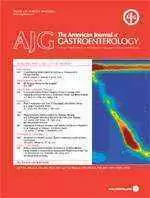- Addisons Disease
- Alopecia
- Anxiety and Depression
- Ataxia
- Attention Deficit Disorder / ADHD
- Autism and Celiac Disease
- Autoimmune Hepatitis / Chronic Active Hepatitis
- Bird Fancieris Lung
- Brain White-Matter Lesions
- Cerebellar Atrophy
- Chronic Fatigue Syndrome (myalgic encephalomyelitis or ME, PVS, post viral fatigue syndrome or PVFS)
- Crohns Disease
- Congenital Heart Disease
- Cystic Fibrosis
- Dental-Enamel Hypoplasia
- Dyspepsia
- Epilepsy (with or without cerebral calcification)
- Farmeris Lung
- Fibromyalgia and Celiac Disease
- Fibrosing Alveolitis
- Follicular Keratosis
- Gall Bladder Disease
- Gastroparesis
- Head Aches (Migraine)
- IBD - Irritable Bowel Disease
- Impotency
- Infertility
- Inflammatory Bowel Disease
- Lung Cavities
- Multiple Sclerosis and Celiac Disease
- Myasthenia Gravis
- Pancreatic Disorders / Exocrine Pancreatic Insufficiency
- Peripheral Neuropathy
- Polymyositis
- Polyneuropathy
- Primary Biliary Cirrhosis
- Pulmonary Hemosiderosis
- Recurrent Pericarditis
- Sarcoidosis
- Schizophrenia / Mental Problems and Celiac Disease
- Scleroderma
- Short Stature, Delayed Puberty
- Small-Intestinal Adenocarcinomas
- Spontaneous Abortion and Fetal Growth Retardation
- Systemic Lupus Erythematosus
- Thrombocytosis (Hyposplenism)
- Thrombocytopenic Purpura (ITP)
- Thyrotoxicosis
- Vasculitis
- Vitamin K Deficiency
-
Welcome to Celiac.com!
You have found your celiac tribe! Join us and ask questions in our forum, share your story, and connect with others.
-
Celiac.com Sponsor (A1):
Celiac.com Sponsor (A1-M):
-
Get Celiac.com Updates:Support Our Content
-
Record is Archived
This article is now archived and is closed to further replies.

By Scott Adams

By Scott Adams •
Reviewed and edited by a celiac disease expert.A List of Diseases/Disorders Probably Associated With Celiac Disease
User Feedback
-
Get Celiac.com Updates:Support Celiac.com:
-
About Me

Scott Adams was diagnosed with celiac disease in 1994. Faced with a critical lack of resources, he dedicated himself to becoming an expert on the condition to achieve his own recovery.
In 1995, he founded Celiac.com with a clear mission: to ensure no one would have to navigate celiac disease alone. The site has since grown into one of the oldest and most trusted patient-focused resources for celiac disease and the gluten-free lifestyle.
His work to advance awareness and support includes:
- Founding Celiac.com in 1995.
- Founding in 2002, and publishing the Journal of Gluten Sensitivity.
- Co-authoring with Dr. Ron Hoggan the book Cereal Killers.
- Founding The Gluten-Free Mall in 1998, which he later sold in 2014.
Today, Celiac.com remains his primary focus. To ensure unbiased information, the site does not sell products and is 100% advertiser supported.
-
Celiac.com Sponsor (A17):
Celiac.com Sponsor (A17):
Celiac.com Sponsors (A17-M):
-
Related Articles
 Abdominal Distention (children) Abdominal Pain, Steatorrhea Anemia - Folate-Deficiency / Iron Deficiency / Pernicious Arthralgia or Arthropathy Arthritis - Rheumatoid Carcinoma of the Oropharynx, Esophagus, and Small Bowel Collagenous Sprue Dermatitis Herpetiformis Diabetes (Type 1) and Celiac Disease Diarrhea Down Syndrome Enteropathy-Associated T-cell Lymphoma Failure to Thrive (children) Hypertransaminasemia IBS - Irritable Bowel Syndrome IgA Deficiency IgA Nephropathy Kidney Disease Liver Disease Low Bone Mass and Celiac Disease Microscopic Colitis / Collagenous Colitis Nerve Disease and Celiac Disease Osteomalacia, Osteoporosis and...
Abdominal Distention (children) Abdominal Pain, Steatorrhea Anemia - Folate-Deficiency / Iron Deficiency / Pernicious Arthralgia or Arthropathy Arthritis - Rheumatoid Carcinoma of the Oropharynx, Esophagus, and Small Bowel Collagenous Sprue Dermatitis Herpetiformis Diabetes (Type 1) and Celiac Disease Diarrhea Down Syndrome Enteropathy-Associated T-cell Lymphoma Failure to Thrive (children) Hypertransaminasemia IBS - Irritable Bowel Syndrome IgA Deficiency IgA Nephropathy Kidney Disease Liver Disease Low Bone Mass and Celiac Disease Microscopic Colitis / Collagenous Colitis Nerve Disease and Celiac Disease Osteomalacia, Osteoporosis and...
- Read Full Article...
- 3 comments
- 33,379 views
 Gluten intolerance often presents itself in ways unexpected, including several common skin conditions. Ranging in severity from dermatitis herpetiformis to dry skin, avoiding gluten may have more to do with your plaguing skin concerns than you imagined.
Gluten intolerance often presents itself in ways unexpected, including several common skin conditions. Ranging in severity from dermatitis herpetiformis to dry skin, avoiding gluten may have more to do with your plaguing skin concerns than you imagined.
Here are some common dermatological concerns associated with celiac disease:
Dermatitits Herpetiformis—This painful, blistery condition can be very stressful, especially when misdiagnosed. An inflamed, itchy rash, dermatitis herpetiformis begins as tiny white filled blisters or red spots around hair follicles. Trying to hide or disguise DH, as well as trying to treat it when misdiagnosed can be incredibly stressful for a person. Eczema—Eating a gluten-free diet is becoming an increasingly popular mode of treatment for eczema...
- Read Full Article...
- 21 comments
- 190,648 views
 Celiac.com 03/07/2011 - Although the HLA-DQ locus is clearly the strongest genetic factor influencing the development of celiac disease, it is certainly possible that other genes play supporting roles. Identifying these genes could help shed light on why certain genetically susceptible individuals develop celiac while others can happily (and healthily) eat gluten.
Celiac.com 03/07/2011 - Although the HLA-DQ locus is clearly the strongest genetic factor influencing the development of celiac disease, it is certainly possible that other genes play supporting roles. Identifying these genes could help shed light on why certain genetically susceptible individuals develop celiac while others can happily (and healthily) eat gluten.
NALP1 and NALP3 are genes that encode proteins involved in assembling the inflammasome, which is exactly what it sounds like – a complex of proteins that promotes inflammation. Gain-of function mutations – those that render the protein perpetually active, rather than responsive to activating signals – in NALP3 are known to cause autoinflammatory diseases, and NALP1 polymorphisms have been associated with the autoimmune disea...
- Read Full Article...
- 0 comments
- 8,462 views
 Celiac.com 08/16/2019 - A recent study looked at nine possible factors in children that might contribute to the development of celiac disease later in life. The study found a connection between skim milk consumption, and vitamin D drop use for more than 3 months, and later development of celiac disease. It also found evidence to support earlier data that early life exposure to antibiotics and early life infection, especially ear infection, are also associated with the development of celiac disease in children.
Celiac.com 08/16/2019 - A recent study looked at nine possible factors in children that might contribute to the development of celiac disease later in life. The study found a connection between skim milk consumption, and vitamin D drop use for more than 3 months, and later development of celiac disease. It also found evidence to support earlier data that early life exposure to antibiotics and early life infection, especially ear infection, are also associated with the development of celiac disease in children.
Read more in Clinical and Experimental Gastroenterology
This study and several others point to the importance of the following risk factors in the development of celiac disease. Other studies have found factors that may contribute to celiac disease.
The Te...
- Read Full Article...
- 9 comments
- 27,266 views
-
Recent Activity
-
- catnapt replied to catnapt's topic in Celiac Disease Pre-Diagnosis, Testing & Symptoms8
how much gluten do I need to eat before blood tests?
oh that's interesting... it's hard to say for sure but it has *seemed* like oats might be causing me some vague issues in the past few months. It's odd that I never really connect specific symptoms to foods, it's more of an all over feeling of unwellness after eating them. If it happens a few times after eating the same foods- I cut back... -
- trents replied to SilkieFairy's topic in Celiac Disease Pre-Diagnosis, Testing & Symptoms1
IBS-D vs Celiac
Welcome to the celiac.com community, @SilkieFairy! You could also have NCGS (Non Celiac Gluten Sensitivity) as opposed to celiac disease. They share many of the same symptoms, especially the GI ones. There is no test for NCGS. Celiac disease must first be ruled out. -
- trents replied to catnapt's topic in Celiac Disease Pre-Diagnosis, Testing & Symptoms8
how much gluten do I need to eat before blood tests?
Under the circumstances, your decision to have the testing done on day 14 sounds very reasonable. But I think by now you know for certain that you either have celiac disease or NCGS and either way you absolutely need to eliminate gluten from your diet. I don't think you have to have an official diagnosis of celiac disease to leverage gluten free service in... -
- SilkieFairy posted a topic in Celiac Disease Pre-Diagnosis, Testing & Symptoms1
IBS-D vs Celiac
After the birth of my daughter nearly 6 years ago, my stools changed. They became thin if they happened to be solid (which was rare) but most of the time it was Bristol #6 (very loose and 6-8x a day). I was on various medications and put it down to that. A few years later I went on this strict "fruit and meat" diet where I just ate meat, fruit, and squash...









Recommended Comments